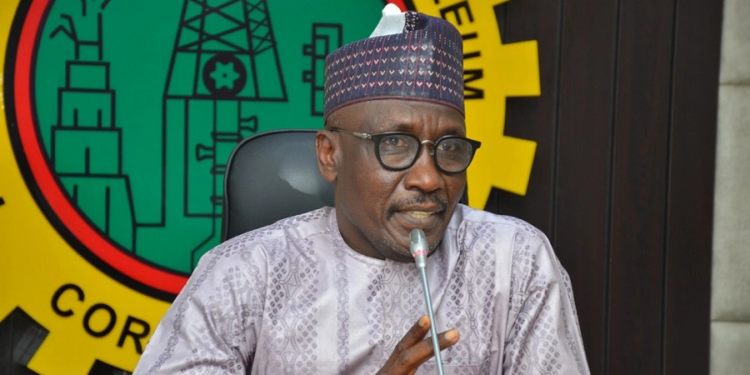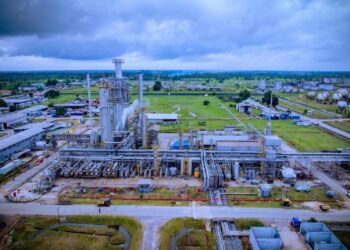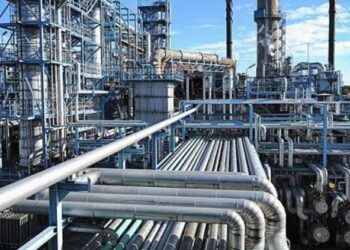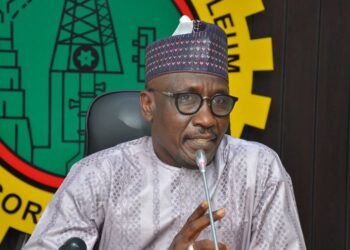- The Group CEO of the Nigerian National Petroleum Company Limited, Mele Kyari, revealed plans by the new administration to offer alternatives to petrol, including compressed natural gas (CNG) and liquefied petroleum gas (LPG) for vehicles.
- The aim is to mitigate the effects of fuel subsidy removal on Nigerians and provide cheap fuel options. These plans will be part of the President’s palliative measures for citizens.
- While CNG presents advantages such as lower cost, reduced emissions, and improved fuel efficiency, there are challenges to its adoption in Nigeria, including the need for infrastructure and government support. The Muhammadu Buhari administration previously initiated the National Gas Expansion Program for the use of natural gas in various sectors but faced implementation challenges.
The Group Chief Executive Officer of the Nigerian National Petroleum Company Limited, Mele Kyari has said that the new president is planning to offer Nigerians alternatives to petrol.
He said this in a statement to the press on Wednesday, June 14 after meeting with President Tinubu at the state house. According to Kyari, there are plans to enable Nigerians to make the necessary switch to the use of compressed natural gas and liquefied petroleum gas as fuels for their vehicles.
Kyari said the Tinubu administration plans a structural approach to make available cheap fuel through compressed natural gas (CNG) and liquefied natural gas (LPG) to mitigate the effects of the subsidy removal on Nigerians.
According to Kyari, the plans would be rolled out soon, as a part of the President’s palliative measures for citizens.
Why the fuel subsidy removal was necessary
Data from the President’s oil and gas advisory council indicates that Nigeria is projected to spend ₦2.9 trillion on education & healthcare in 2023, significantly less than the ₦3.3 trillion budgeted for fuel subsidy in just the first half of the year. Meanwhile, the country ranks 163/191 on the human development index, one of the lowest in the world.
Will the natural gas option work out in Nigeria?
A recent report from PwC states that Compressed Natural Gas (CNG) has several potential advantages, including:
Lower cost
Reduced emissions
Improved fuel efficiency.
CNG is also considerably cheaper than petrol, which could result in substantial savings for vehicle owners.
The cost of CNG is more stable than the volatile price fluctuations experienced by petrol.
The use of CNG could reduce vehicle maintenance costs due to its cleaner burning properties, which produce fewer engine deposits that clog up the engine over time.
However, the adoption of CNG in Nigeria also presents some challenges. These challenges include the initial investment required to retrofit existing vehicles with CNG engines, the need to establish a robust distribution infrastructure for CNG, and the need for government policies and incentives to promote the use of CNG.
While CNG presents several benefits compared to petrol, PwC says there are challenges to its adoption making it an unlikely alternative to petrol in the short to medium term.
What you should know
It was the Muhammadu Buhari administration that kickstarted the natural gas for vehicles narrative. This was done through the National Gas Expansion Program (NGEP), which was launched under the Decade of Gas Declaration in 2021.
NGEP is an initiative for the use of natural gas variants for captive power generation, industrialisation, clean cooking, and automotive fuel in Nigeria. However, the Buhari-led administration was unable to implement the initiative.
















.gif)







To truly help Nigerian consumers lower their transportation costs, the federal government could make a significant impact by simply reducing or temporarily suspending import duties on energy-efficient vehicles like hybrids and electric cars. This would enable consumers to purchase vehicles with higher fuel and energy efficiency and retire their older less efficient vehicles, resulting in long-term savings.
On the other hand, considering Compressed Natural Gas as a vehicle fuel option is nothing more than wishful thinking, as its disadvantages far outweigh any potential benefits. While CNG may have a role to play in generating electricity within a robust power industry and grid, it is not a viable solution for addressing the current increase in transportation costs in Nigeria. Considering it as such would only lead to disappointment.
I used to own a hybride car, it uses gas and petrol. I never touched the gas, cos I was so scared. Still carry that fear till date. For me, the best subsidy for petrol will be to improve power seriously while also thinking about alternative energy sources.
Low the fuel price government